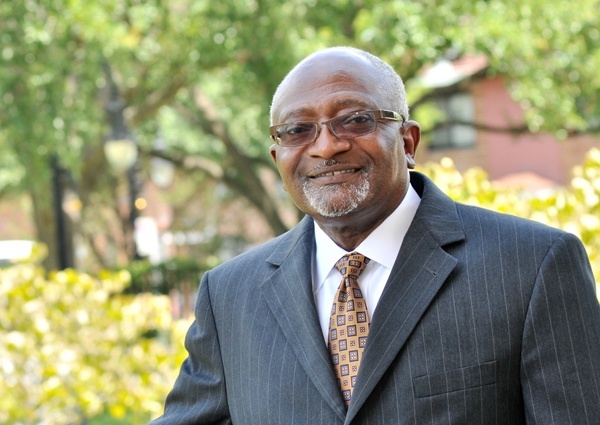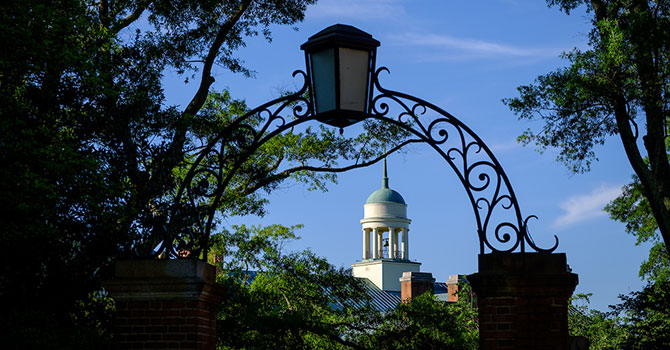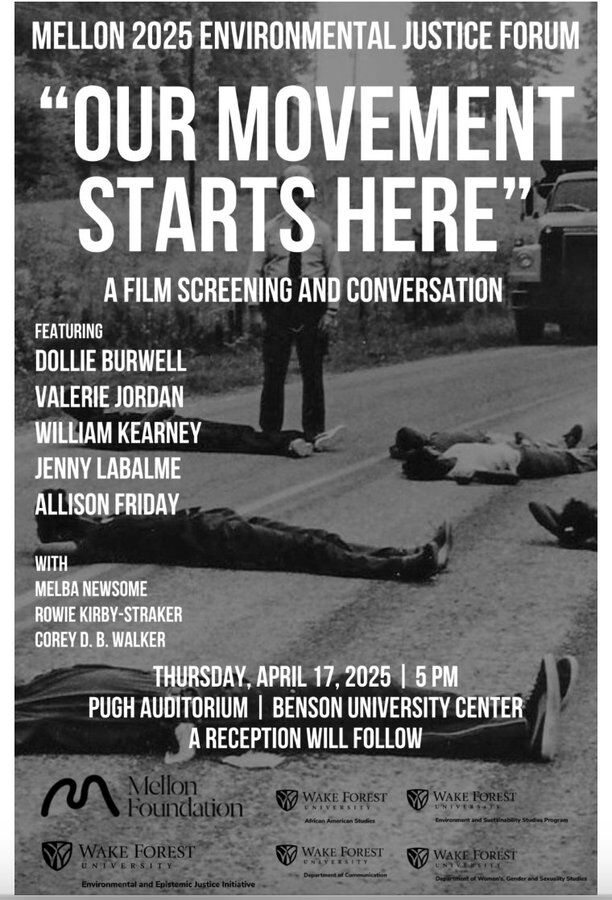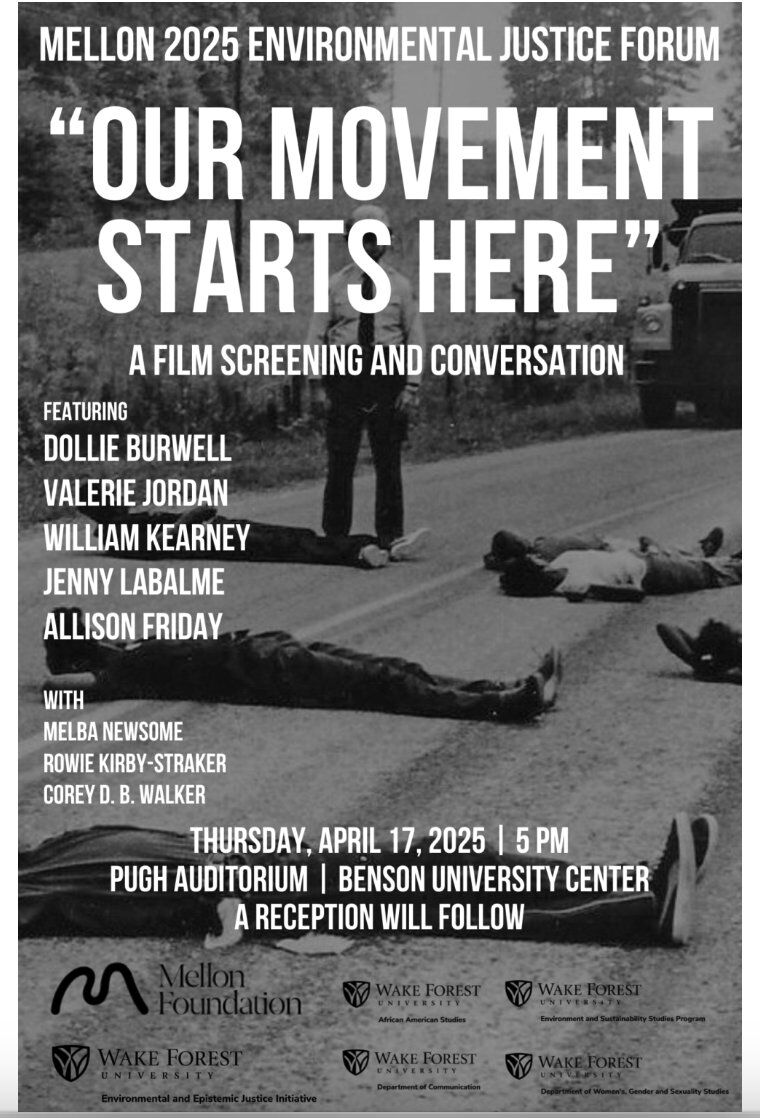About the Initiative
The Environmental and Epistemic Justice Initiative at Wake Forest University is a Mellon Foundation funded research and pedagogical project that brings together students, scholars, activists, journalists, and public officials in a multi-pronged effort to imagine, design, and develop a humanistic Science and Technology Studies curriculum that places at its center environmental and epistemic justice in critically examine how and in what ways race and regimes of racial knowledge shape and inform our scholarly practices, public policies, and normative concerns.
“The ultimate goal of this initiative is to cultivate a new generation of students and scholars who understand that a complex knowledge of race and processes of racialization are critical to comprehending and responding to our current environmental crisis.”

“All people are entitled to equal environmental protection regardless of race, color, or national origin. Environmental justice is the right to live and work and play in a clean environment.”
– Robert D. Bullard
Environmental Justice Pioneer and Distinguished Professor at Texas Southern University

Institute
Learn more about our signature environmental justice summer institute.
Applications are now open for the Environmental and Epistemic Justice 2026 Journalism Fellowship in London, England. The deadline to apply is February 15, 2026. Click below for more information.

Programs
Learn more about our diverse environmental and epistemic justice programs

People
Learn more about the diverse group of Wake Forest University environmental justice scholars
2026 Mellon Environmental Justice Lecture
with Michael S. Regan
Please visit our YouTube channel to view our programs.
News
Rochester’s Inner Loop Meets Its End
December 18, 2025
The city looks to revitalize its core by filling in the highway that destroyed it
A homecoming awaits
December 12, 2025
The Muscogee Nation, sometimes called the Muscogee Creek Nation, may soon become the first Indigenous nation invited back to co-steward the land it once called home, before being forcibly removed nearly two centuries ago.
Uncharted Waters
December 2025
Recovered from decades of industrial waste dumping, one river in the nation’s capital is again threatened – this time by federal budget cuts.
A tribe in Nevada finally had funding for climate resilience. Then a grant was ripped away.
November 3, 2025
Joseph Frank was one of the first firefighters to respond to a massive wildfire that broke out on the Walker River Reservation in June last year.






